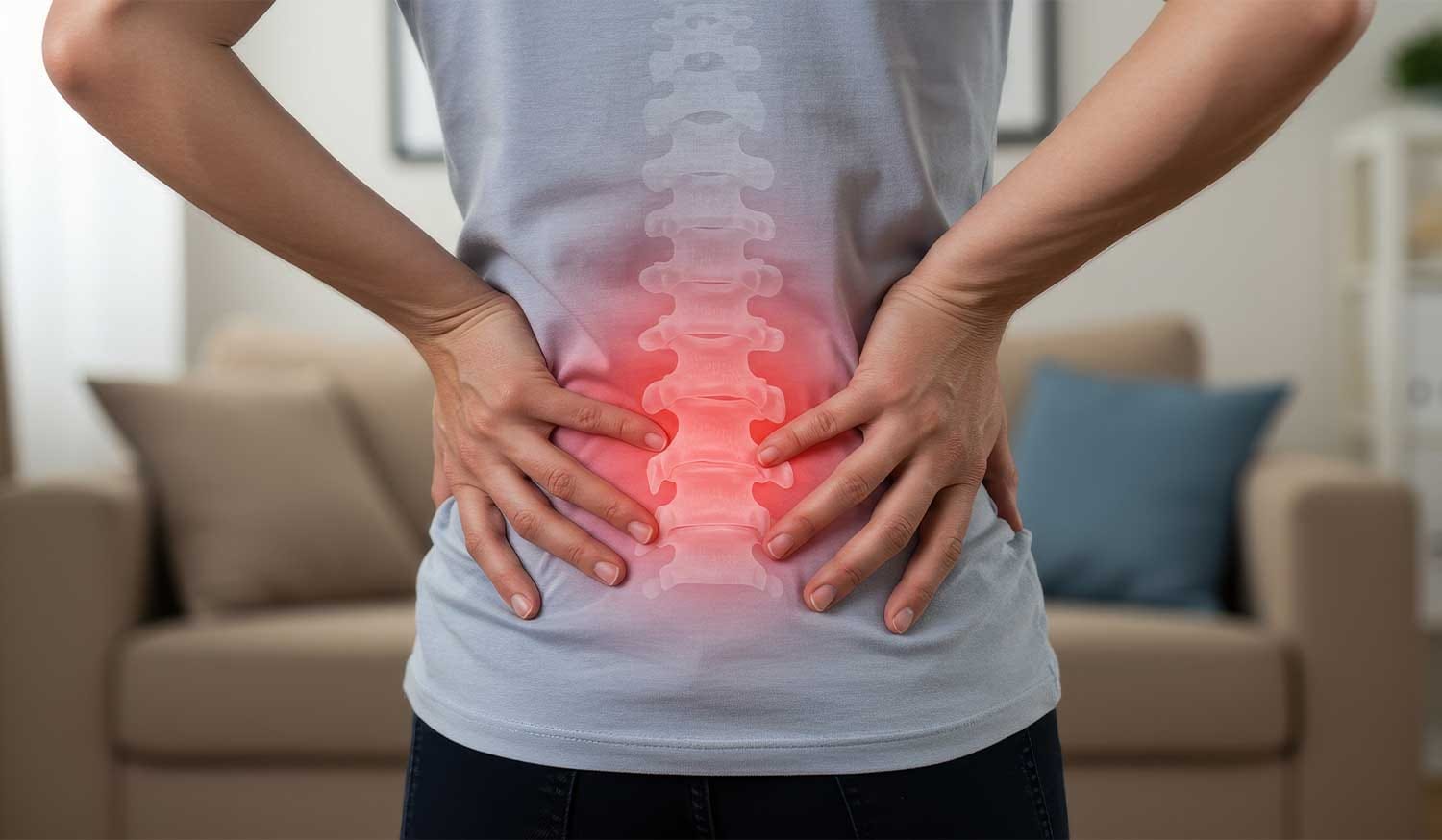Ageing doesn’t mean spinal pain. Discover tailored exercises, nutrition tips, and osteopathic therapies to maintain spinal health for seniors, brought to you by MHV Clinic’s specialists.

As we age, our bodies undergo natural changes that can affect mobility and comfort, particularly in the spine. However, maintaining spinal health for seniors is entirely achievable with the right approach. At MHV Clinic, our osteopaths specialise in gentle, non-invasive treatments that address common issues like back pain and stiffness. Drawing on over 20 years of experience, we specialise in osteopathy to help seniors stay active and pain-free. In this comprehensive guide, we’ll explore how osteopathy plays a central role in spinal care, alongside practical exercises, nutrition strategies, and preventive tips. Whether you’re dealing with occasional discomfort or seeking long-term wellness, these insights can make a real difference.
Ageing often brings about subtle changes to the spine, including reduced disc height, joint wear, and muscle weakening. These can lead to conditions such as general backache or arthritic pain, which affect many people over 65. Importantly, though, these changes don’t have to result in chronic pain. Osteopathy, a hands-on therapy, detects and treats musculoskeletal issues by improving joint function and reducing tension. At MHV Clinic, our specialists assess the spine holistically, considering how posture, movement, and daily habits contribute to discomfort.
Furthermore, seniors may experience sciatica or uncomplicated mechanical neck pain, both of which osteopathy can help manage through targeted techniques. According to UK guidelines, osteopaths can assist with these by restoring normal function without implying a cure for underlying diseases. This approach aligns with evidence-based practices, ensuring the delivery of safe and effective care. For instance, if arthritis in the hips or knees stems from spinal misalignment, osteopathic adjustments can serve as an adjunct to exercises and core treatments, promoting better overall mobility.
Osteopathy stands out as a cornerstone for maintaining spinal health in seniors because it emphasises the body’s natural healing abilities. Unlike invasive procedures, osteopathic treatments involve gentle manipulation, stretching, and massage to realign the spine and ease muscle spasms. At MHV Clinic, our osteopaths tailor sessions to individual needs, starting with a thorough evaluation to identify subluxations—misalignments that cause pain or restricted movement.
One key benefit is pain reduction for conditions like lumbago or rheumatic pain, which are common in older adults. Techniques such as spinal adjustments use precise, controlled movements to improve mobility and enhance nervous system function. Additionally, osteopathy can help alleviate tension-related headaches originating from the neck, providing relief without relying solely on medication. Research from UK sources supports its use for minor sports injuries or generalised aches, making it suitable for active seniors.
For older adults, safety is paramount. Osteopathy is generally well-tolerated, with potential side effects limited to mild soreness that resolves quickly. Our clinic’s personalised plans include aftercare advice, such as lifestyle modifications to sustain improvements. If you’re experiencing chronic back pain not related to an injury, consulting an osteopath can provide targeted support that complements other health strategies.
Moreover, osteopathy integrates well with multidisciplinary care. For example, it can enhance recovery from arthritic joint pains when combined with exercise, as recommended by health authorities. This holistic view ensures seniors not only manage symptoms but also prevent future issues, fostering independence.

Exercise is vital for spinal health in seniors, and when guided by an osteopath, it becomes even more effective. Starting slowly prevents strain, and incorporating osteopathic advice ensures movements align with your body’s needs. Here are some evidence-based exercises from UK experts, suitable for most seniors—always consult a professional first.
Additionally, balance exercises like sideways walking can support spinal alignment by strengthening supporting muscles. Osteopaths at MHV Clinic often recommend these as part of aftercare, adjusting them for conditions like osteoporosis. Regular practice, approximately 150 minutes weekly, as recommended by the NHS, can help reduce fall risks and maintain good posture.
However, if pain persists, osteopathic manipulation can prepare the body for exercise by reducing stiffness first. This sequential approach ensures seniors build strength safely.

Nutrition complements osteopathy by providing the building blocks for bone and tissue repair. For seniors, focusing on key nutrients helps combat age-related bone loss, which impacts spinal integrity.
Primarily, calcium is essential for maintaining bone density—aim for 700mg daily from sources such as dairy, leafy greens, or fortified alternatives. Vitamin D aids in absorption; it can be obtained from sunlight exposure or foods such as oily fish and eggs. The NHS advises 10mcg supplements if you’re over 65 or housebound.
Protein supports muscle health around the spine—include lean meats, beans, and nuts in meals. Vitamins B6, B9, and B12, found in whole grains and vegetables, help strengthen bones against fractures. Magnesium and zinc, found in seeds and whole foods, aid in mineralisation.
A balanced diet that includes fruits, vegetables, carbohydrates, and proteins helps prevent deficiencies. For spinal health, anti-inflammatory foods like omega-3-rich fish can ease arthritic pain. Osteopaths may discuss nutrition during consultations, linking it to treatment outcomes.
Furthermore, staying hydrated supports disc health, as dehydration can worsen stiffness. Combining this with osteopathic care amplifies benefits, helping seniors maintain an active lifestyle.
Beyond osteopathy, other therapies can enhance spinal health. Manual therapies, such as mobilisation, help facilitate recovery from back pain. At MHV Clinic, we integrate these with adjustments for comprehensive care.
Preventively, good posture during daily activities reduces strain. Use ergonomic chairs and avoid prolonged sitting. Weight-bearing exercises, as noted by the Royal Osteoporosis Society, build bone strength.
If symptoms like persistent pain arise, seek an osteopath promptly. Early intervention can effectively manage issues like muscle spasms. Regular check-ups at clinics like MHV prevent escalation.
Signs warranting a visit include ongoing backache, reduced mobility, or pain radiating to limbs. Osteopaths can assess and treat without needing a GP referral in the UK. At MHV Clinic, our Central London location provides accessible, expert care tailored to the needs of seniors.